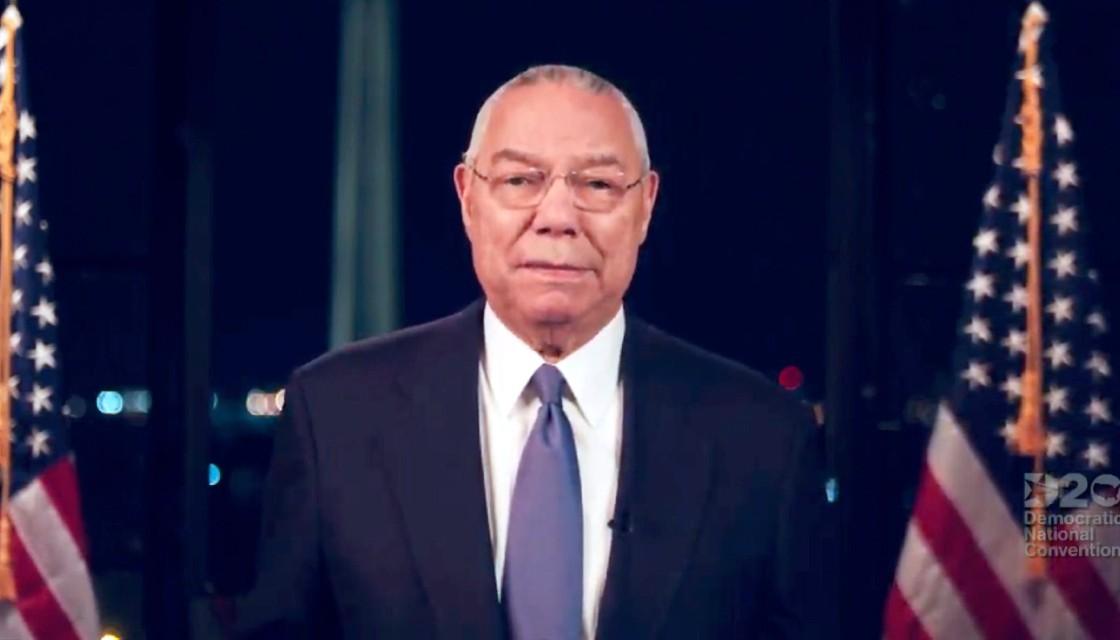Colin Powell, the first Black US secretary of state and top military officer, died on Monday at the age of 84 due to complications from COVID-19. He was fully vaccinated, his family said in a statement on Facebook.
"We have lost a remarkable and loving husband, father, grandfather and a great American," his family said, thanking the staff of the Walter Reed National Military Medical Center near Washington who treated Powell, but providing few details about his illness.
Powell was one of America's most prominent Black figures for decades. He served three Republican presidents in senior posts and reached the top of the US military as it was regaining its vigor after the trauma of the Vietnam War.
He was the top US general when US-led forces drove Iraqi troops from Kuwait in 1991 and the chief US diplomat when Washington relied on erroneous intelligence about Iraqi weapons of mass destruction to justify its 2003 invasion of Iraq.
In a brief statement, the Powell family said he had died on Monday morning from COVID-19, had been fully vaccinated against the disease, and thanked the medical staff who cared for him.
The statement did not address such matters as what vaccine he received or whether he had gotten a booster shot, when he fell ill, when he may have been hospitalized and whether he may have had underlying health conditions that contributed to his illness.

US news organisations reported that Powell had multiple myeloma, a cancer of plasma cells that reduces the body's ability to fight infection. Reuters could not immediately confirm the reports.
Condolences poured in from Democrats as well as Powell's fellow Republicans, including former President George W Bush.
"Many presidents relied on General Powell's counsel and experience," Bush wrote in a statement. "He was such a favorite of presidents that he earned the Presidential Medal of Freedom - twice."
Former British Prime Minister Tony Blair recalled Powell's self-deprecating humor, his kindness to his staff and his "willingness to work across partisan division in the interests of his country".
"Colin was a towering figure in American military and political leadership over many years, someone of immense capability and integrity, a hugely likeable and warm personality," Blair said.
Iraq wars
Powell served as US national security adviser under President Ronald Reagan from 1987 to 1989. As a four-star Army general, he was chairman of the Joint Chiefs of Staff under President George HW Bush during the 1991 Gulf War in which US-led forces expelled Iraqi troops from neighboring Kuwait.
READ MORE
- Merck antiviral COVID-19 pill sparks calls for access for lower income countries
- Taranaki midwives prepared to quit rather than get vaccinated against COVID-19
- How the hunt for this deadly virus shaped the search for Covid-19 origin
- International media paints grim picture of New Zealand COVID outbreak
A moderate Republican and a pragmatist, Powell later served as secretary of state under President George W Bush and publicly presented erroneous intelligence on which the United States based its March 2003 invasion of Iraq in the inaccurate believe that it had weapons of mass destruction.
He considered running for president in 1996 but his wife Alma's worries about his safety helped him decide otherwise. In 2008, he broke with his party to endorse Democrat Barack Obama, the first Black person elected to the White House.
Illustrating his deep misgivings about the evolution of the Republican Party as it moved to the right in recent years, Powell endorsed Democrats Hillary Clinton in the 2016 presidential election and Joe Biden last year against Donald Trump. Powell called Trump a liar who presented a danger to the United States.
Powell will forever be associated with his controversial presentation on February 5, 2003, to the UN Security Council, making Bush's case that Iraqi President Saddam Hussein constituted an imminent danger to the world because of its stockpiles of chemical and biological weapons.
He admitted later that the presentation was rife with inaccuracies and twisted intelligence provided by others in the Bush administration and represented "a blot" that will "always be a part of my record".



